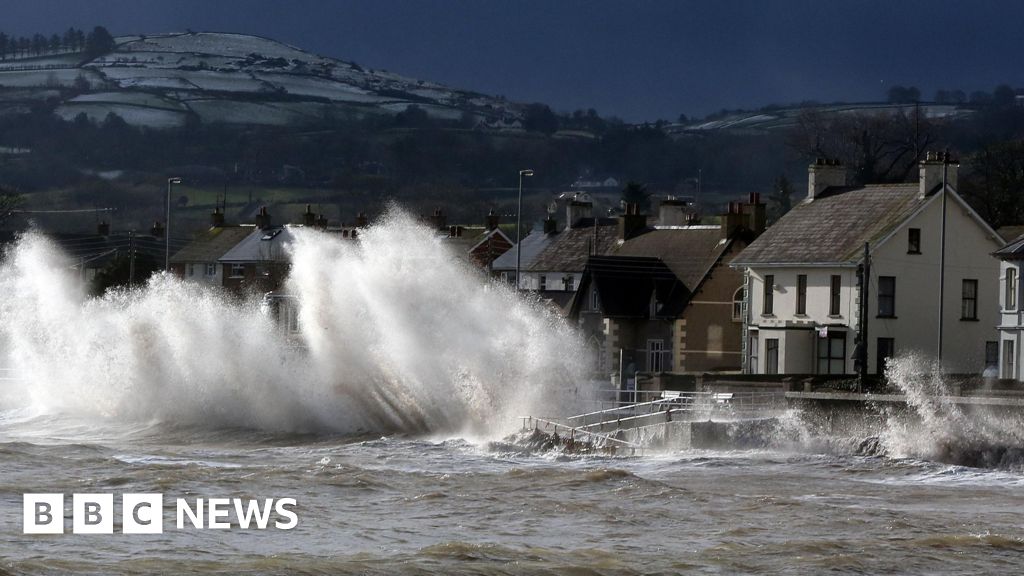With plenty of money to play with, how does Budget 2025 measure up for climate action?
As the world warms at an unprecedented rate, with 2023 breaking temperature records (and early data showing this year is likely to follow a similar pattern) and extreme weather events continuing to batter communities around the world, how does Budget 2025 – the final one for this coalition before a general election – address the ever-growing issue of the climate crisis?
An increase in carbon tax, small reliefs in public transport, heat pumps and EVs and more money for long-term infrastructure planning, but a lot of the same vague promises about climate action featured in this year’s budget.
Climate funds
The headline investment for climate is the provision of two funds announced in last year’s budget: the Infrastructure, Climate and Nature Fund (ICNF) to deliver capital projects with one of its stated aims being to support the Government’s Climate Action Plan; and the Future Ireland Fund (FIF), which includes funding for expected climate-related costs in the future.
Critics last year said the budget lacked a sense of urgency and failed to deliver meaningful action, with no details given as to how the two funds would specifically address current climate challenges.
In his budget speech this afternoon (1 October), Minister for Finance Jack Chambers, TD, announced that both funds had been established as promised, with €2bn transferred to the ICNF and €4.3bn transferred to the FIF, with a further €4.1bn to be sent later this year. He pledged a total of €6bn for the funds next year, stating that they are critical in helping the country to prepare for an uncertain future.
In his speech, Minister for Public Expenditure, National Development Plan Delivery and Reform Paschal Donohoe, TD, said that the INCF will go towards the reduction of greenhouse gas emissions, an improvement in water quality, nature and biodiversity.
Climate tax measures
In its updated taxation policy for Budget 2025, the Government lists climate action as one of its five key objectives.
“This Government has been responsible for a step-change in Ireland’s climate actions and, as the threats from climate change continue to manifest themselves, I am pleased to announce several climate-related tax measures,” Chambers said.
These measures include a reduction in VAT on heat pumps from 23pc to 9pc to support the retrofitting of homes, and an increase in carbon tax by €7.50 per tonne of CO2.
The Government said that carbon taxes will add €951m to the exchequer, with plans for this money to include spending €477m on residential and community energy efficiency and other Government programmes, €20m for greenways, active travel and EV grants, and €5m for peatland restoration.
The carbon tax comes in for petrol and diesel on 9 October 2024; for other fuels, including home-heating fuel, this measure is deferred until 1 May 2025.
“The announced deferral, while welcome, is a sticking plaster in the absence of a wider, more ambitious strategy to decarbonise the home-heating sector,” said the Alliance for Zero Carbon Heating in a statement.
“The Government are way behind on their targets for retrofitting and heat-pump installation, and there is widespread reluctance among the public to adopt heat pumps, given the high up-front costs.
“In the absence of affordable alternatives, the Government is condemning households to continuous cost increases year on year.”
The electricity credit for households has been continued for 2025, with two credits worth €125 each. In a pre-budget submission, a coalition of 11 NGOs called on the Government to reconsider this universal energy credit. They argued that targeted measures are needed to “provide immediate support and lasting relief for households facing energy poverty” and called for fully funded energy retrofits.
“Universal energy credits are a short-term solution that offers temporary relief but fail to address the root causes of energy poverty, and do nothing to reduce our reliance on fossil fuels,” said Friends of the Earth’s energy policy officer Clare O’Connor.
Other taxation measures include changes in Vehicle Registration Tax to better support battery electric commercial vehicles and a reduction in the emissions levels for company cars to qualify for capital allowances. “This measure is designed to incentivise uptake of [electric vehicles] EVs in the company car sector which will over time assist the acceleration of a second-hand EV market,” Chambers said.
Also for company EVs, there will be an extension to the benefit-in-kind (BIK) relief. Companies can avail of €45,000 in relief for EVs (€35,000 is EV relief already in legislation and €10,000 is a temporary relief introduced in 2023 for all vehicles). There will also be a BIK relief for employers to set up home EV-charging stations for employees.
Geotab’s David Savage was disappointed not to see the restoration of grants for the purchase of EVs to their previous levels in this year’s budget.
“This is a real missed opportunity as reducing transport emissions is not only a key factor in achieving Ireland’s climate targets but is also a crucial aspect of improving air quality,” he said.
“The EPA only highlighted last week the key role EVs have in tackling dangerous levels of nitrogen dioxide from vehicle emissions, with Ireland set to miss its health-based WHO air quality guideline targets in 2026.”
Other transport policies include the extension of free public transport to children aged five to eight, people over 70 will be able to travel with a friend for free, and the 90-minute fare is extended to 2025. The Government also promised a €1m per day investment in cycling and walking infrastructure.
The Government has also reached a €99m financing agreement with the Port of Cork to develop infrastructure to facilitate offshore renewables projects. Recent research from Dublin City University highlighted the need for Ireland to upgrade its ports to support both fixed and floating offshore wind farms and take advantage of the country’s huge marine territory to produce renewable energy.
Infrastructure plans
Ireland’s electricity demands are increasing at a rapid pace, particularly with the number of data centres housed here. In order to provide “secure, stable and green energy infrastructure”, the Government has allocated €750m to develop Ireland’s electricity grid infrastructure.
The Irish Solar Energy Association (ISEA) said the investment is “a crucial step forward” and urged the Government to fast track these upgrades.
“The grid remains a significant bottleneck in achieving the national target of 80pc renewable electricity,” the ISEA said in a statement. “With a strong pipeline of solar projects ready to be deployed, ensuring that our electricity grid can handle this transition is essential.”
The ISEA, however, was disappointed that the grant for homeowners to install rooftop solar panels was not restored. “Reducing this support at a time of unprecedented demand is both counterproductive and misaligned with Ireland’s clean energy goals.”
In discussing infrastructure spend, Donohoe hinted at the Government’s plans for the Apple tax windfall, as awarded by the European Court of Justice in September. The fund is currently valued at €14.1bn. Donohoe said that the Government will come together to plan how to spend this “significant” sum, but that it has been agreed that it should be invested in “infrastructure for the future development of our society”.
“Specifically, water, electricity, transport and housing have been identified as four strategic investment pillars,” he said. “Investing in these areas will support the needs of our people, assist in growing our economy, and help in meeting our climate and nature goals.”
Don’t miss out on the knowledge you need to succeed. Sign up for the Daily Brief, Silicon Republic’s digest of need-to-know sci-tech news.









